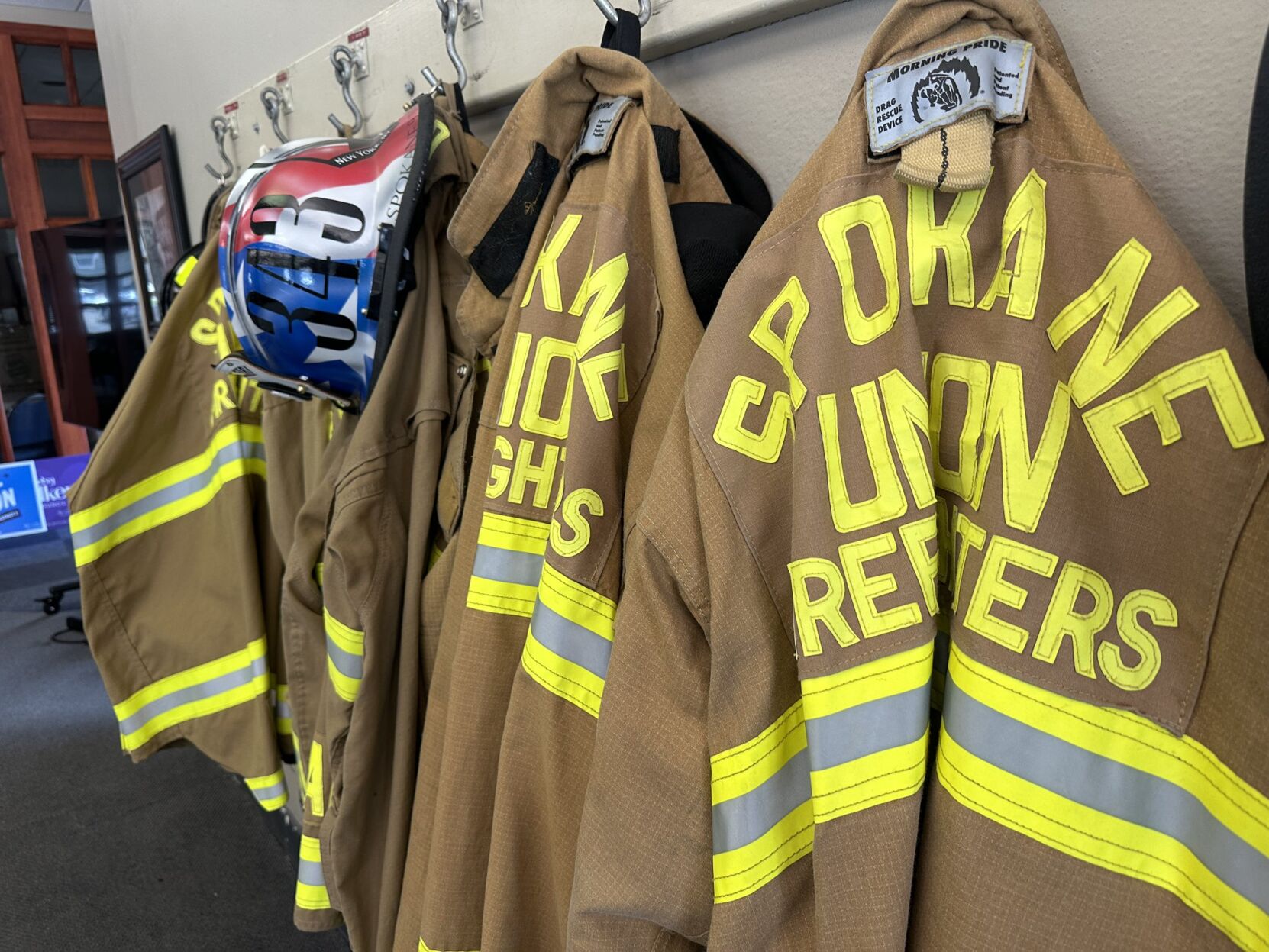SPOKANE, Wash. — Fire officials are worried their safety could be compromised by the federal government’s recent budget cuts to the National Institute for Occupational Safety and Health (NIOSH).
Spokane’s NIOSH facility conducts safety research in high-risk industries like mining, oil and gas extraction, commercial fishing and firefighting. It is set to close in June due to government funding cuts.
PREVIOUS COVERAGE: Closure of Spokane miner research facility sparks concerns over worker safety
John Goodman, President of Spokane Firefighters Union Local 29, said he is worried about the potential setbacks in firefighter and workplace safety due to NIOSH closing.
“I’m really afraid that we’re going to go backwards,” he said. “I’ve seen an evolution of our jobs, and a lot of the job safety practices and things that we do as a result of the NIOSH studies.”
He said when he began firefighting, fire crews used to remove their masks once the fire was out to clean up debris.
“NIOSH figured out that there are 200-plus carcinogenic chemicals that are involved in byproducts of combustion. They’re still hanging around in the air as we’re in there working with a shovel. So, that changed the practice. Now, we wear respiratory protection the entire time we do overhaul.”
Local 29 officials also said NIOSH identified the presence of potentially cancer-causing PFAS, also known as ‘toxic forever chemicals’ in firefighter bunker gear.
“Our entire bodies are encapsulated in this, and when it gets super heated, and our pores open them, because it’s so hot in the fire, that’s just a really easy way for the PFAs to get it inside of our system and cause cancer,” said Justin Wells, member of Local 29 and Washington State Council Firefighters Cancer Support Network.
NIOSH and union officials are now looking for safer gear alternatives because of the research.
“Firefighters already have a 9% chance of increase in getting diagnosed with cancer, as well as a 14% chance risk of dying from cancer. On top of that, cancer is close to 75% of why firefighters die due to the line of duty,” Wells said.
Currently, Spokane’s NIOSH team is conducting a study on how high heat affects firefighters’ cognitive abilities.
“Our suit is made of a bunch of material that inherently would increase our body temperature, and if our body temperature is rising and we’re making poor decisions because of the cognitive decline, that potentially could cause catastrophic injuries,” Keven Rojecki, Health and Safety Committee Chair with the Washington State Council of Firefighters said. “I think the issue here is, we want to prevent that, and if they find something that clearly is increasing our core body temperature, how do we mitigate that? That’s the next step.”
Earlier this week 4 News Now spoke with the University of Washington which has two NIOSH-funded centers. Officials there are concerned that they too will suffer cuts which would stop their studies that help firefighters as well.
Rojecki pointed to a study UW did about firefighters’ gloves and their exposure to toxic chemicals.
“They recently just did a study that they completed that we’re probably better off using a nitrile glove, or some sort of rubber glove to reduce cross contamination. So, that’s how the University of Washington can help us,” Rojecki said.
Without such studies, officials fear an increase in firefighter fatalities.
“I feel like, if this continues, we’re going to see a regression in the studies, the technology, the ability to find answers to the problems that we as firefighters face,” Goodman said.
COPYRIGHT 2025 BY KXLY. ALL RIGHTS RESERVED. THIS MATERIAL MAY NOT BE PUBLISHED, BROADCAST, REWRITTEN OR REDISTRIBUTED.



